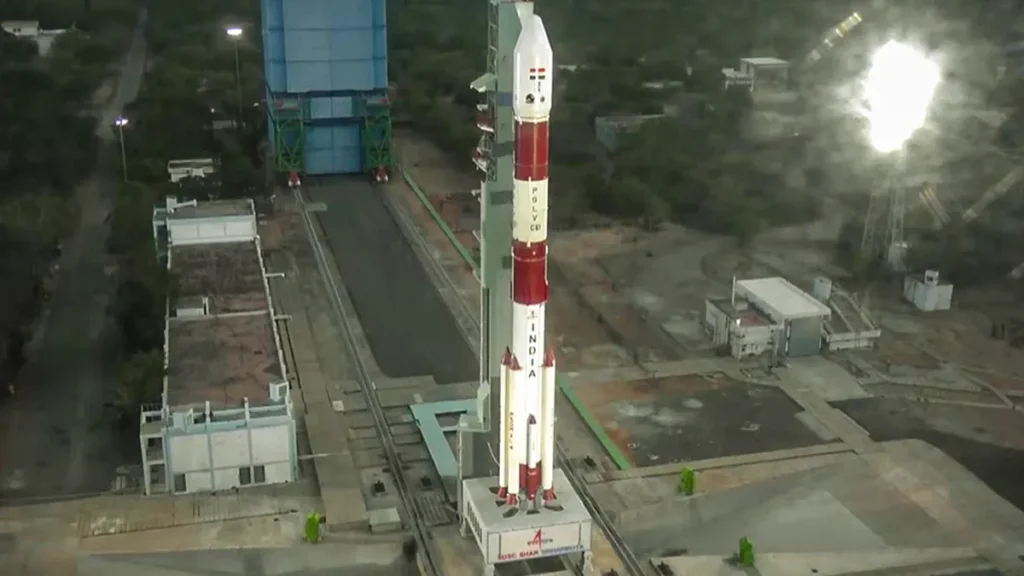In a significant moment for India’s space education and outreach, the Indian Space Research Organisation (ISRO), in collaboration with private firm Thrust Tech India, successfully conducted its first rocket launch test with a satellite payload from Kushinagar, Uttar Pradesh. The mission, carried out on June 14, marks the first time a satellite-carrying rocket was launched from the state—positioning Kushinagar as a future hub for student-led space innovation.
The test involved a 15-kilogram rocket, which ascended to an altitude of 1.1 kilometers before deploying a small satellite that descended safely via parachute. The payload landed within 400 meters of the launch pad, indicating precision in both launch trajectory and recovery systems.
A First for Uttar Pradesh
Until now, rocket launches in India have been largely limited to coastal centers like Sriharikota and Thumba. The success of this test, conducted under ISRO’s supervision and the guidance of the Indian National Space Promotion and Authorization Center (IN-SPACe), is being viewed as a major step in decentralizing India’s space infrastructure and expanding access to space technology beyond traditional regions.
“This is just the beginning,” said ISRO scientist Abhishek Singh, who confirmed the mission’s success. “The rocket and payload were recovered intact, and the data gathered will inform future launch planning.”
A Platform for Student Innovation
The launch was part of a larger effort to prepare for the upcoming IN-SPACe CANSAT & Model Rocketry India Student Competition, scheduled for October–November 2025, which will see more than 900 student-built miniature satellites launched from the same site.
Vinod Kumar, founder of Thrust Tech India, described the test as “a critical validation of launch systems and safety protocols.” He emphasized that the ultimate goal is to bring practical space science education to students across India, many of whom have limited access to such opportunities.
“By launching from Kushinagar, we are not just testing rockets—we’re launching aspirations,” Kumar said.
Expanding India’s Space Ecosystem
ISRO’s involvement in the Kushinagar mission is part of a broader strategy to expand India’s space innovation ecosystem, encourage public-private partnerships, and promote STEM education at the grassroots level.
By facilitating launches in non-traditional geographies and involving private players, the agency is redefining the country’s approach to space science—making it more inclusive, accessible, and education-driven.
Looking Ahead
As the October student rocket competition approaches, Kushinagar is poised to become a model site for academic and grassroots space missions. ISRO’s presence lends both credibility and technical rigor, while the involvement of youth signals a vibrant and diverse future for India’s space ambitions.
With the success of this initial launch, India’s next generation of space explorers may very well be building satellites not in labs, but from rooftops and classrooms across the country—and launching them from small towns like Kushinagar.


